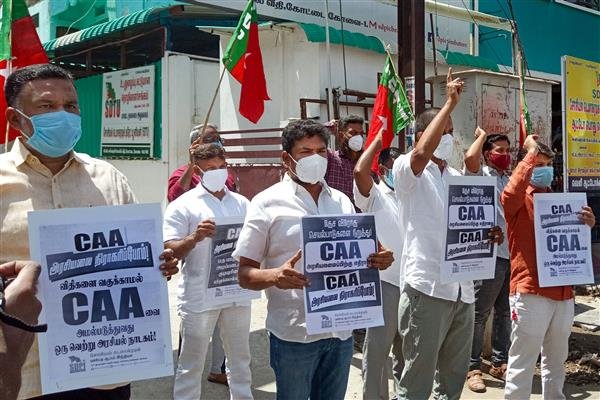On March 11, the Indian government set in motion the implementation of the Citizenship Amendment Act (CAA) 2019, a decision that has reignited strong reactions and protests in the northeastern state of Assam. The CAA aims to grant citizenship to non-Muslim migrants from neighboring countries such as Pakistan, Bangladesh, and Afghanistan. However, this move has sparked concerns among indigenous groups in Assam, who fear that it could lead to an influx of immigrants and alter the demographic balance of the region.
Assam has a turbulent history with the CAA, dating back to violent protests in 2019 that resulted in casualties. Indigenous communities in the state have been vocal in their opposition to the act, fearing that it could undermine their cultural identity and way of life. The All Assam Students’ Union (AASU) and other organizations have been at the forefront of organizing rallies and demonstrations against the CAA, with protests intensifying in the wake of the government’s decision to implement the act.
Various opposition parties in Assam, including the Raijor Dal and the Assam Jatiya Parishad, which emerged from the anti-CAA movements, have also joined the protests. The Aam Aadmi Party (AAP) has staged demonstrations in Guwahati, adding to the growing chorus of dissent against the CAA in the state. Protesters have vowed to continue their peaceful opposition to the act and are exploring legal avenues, including filing petitions in the Supreme Court, to challenge its implementation.
In response to the protests, Assam Chief Minister Himanta Biswa Sarma issued a stern warning against any disruptions or violations of court orders. He cautioned that political parties risked losing their registration if they failed to comply with legal directives. Sarma emphasized the importance of upholding the rule of law and urged protesters to seek redress through lawful means rather than resorting to street demonstrations.
Similarly, the Guwahati Police issued a warning to agitating parties organizing strikes or hartals, cautioning them against causing any damage to public or private property. The police stated that legal action would be taken against individuals or organizations found responsible for vandalism or violence during protests. They emphasized their commitment to maintaining law and order and ensuring the safety of citizens and public infrastructure.
The decision to implement the CAA has once again thrust Assam into the spotlight, reigniting debates over citizenship, identity, and immigration in the region. While the government argues that the act is necessary to protect persecuted minorities from neighboring countries, critics contend that it could have far-reaching implications for the indigenous communities of Assam. The fear of demographic change and loss of cultural heritage has galvanized opposition to the CAA, with many residents expressing concerns about the long-term impact of the legislation on their way of life.
As tensions simmer in Assam, the government faces mounting pressure to address the grievances of indigenous communities and find a resolution to the ongoing dispute over the CAA. With protests showing no signs of abating, the coming days and weeks are likely to witness continued unrest and political maneuvering as stakeholders on all sides seek to advance their respective agendas. In this charged environment, the need for dialogue, compromise, and respect for the rule of law has never been greater, as Assam grapples with the implications of the CAA and its implications for the future of the state and its people.
